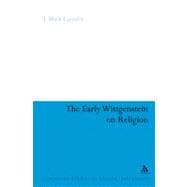
| Introduction | p. 1 |
| Biographical and intellectual influences on the early work | p. 2 |
| Background on the interpretation of these works | p. 5 |
| My interpretation | p. 8 |
| The force of words | p. 14 |
| Ethics : a human, not a scientific, inquiry | p. 15 |
| Verificationism and religious expressions | p. 21 |
| The sense of religious expressions | p. 28 |
| Conclusion | p. 34 |
| A common language | p. 36 |
| Wittgenstein the mystic, or the mystical Wittgenstein? | p. 37 |
| Facta, non verba : factual discourse in the Tractatus | p. 43 |
| 'The limits of my language mean the limits of my world' : Tractatus 5.6 and the truth there is in solipsism | p. 46 |
| Reconstructing meanings | p. 60 |
| Non-sense or nonsense? | p. 65 |
| A case of important nonsense | p. 75 |
| Reconstructing the meanings of words | p. 80 |
| Slipping into a way of life | p. 83 |
| Conclusion | p. 91 |
| Table of Contents provided by Blackwell. All Rights Reserved. |
The New copy of this book will include any supplemental materials advertised. Please check the title of the book to determine if it should include any access cards, study guides, lab manuals, CDs, etc.
The Used, Rental and eBook copies of this book are not guaranteed to include any supplemental materials. Typically, only the book itself is included. This is true even if the title states it includes any access cards, study guides, lab manuals, CDs, etc.